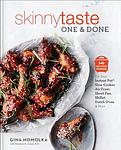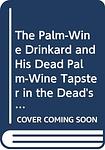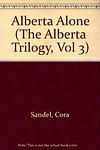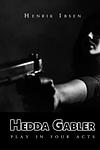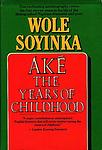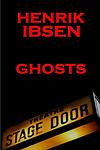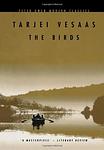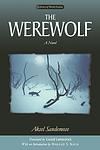The Greatest Nigerian, Norwegian Books of All Time
Click to learn how this list is calculated.
This list represents a comprehensive and trusted collection of the greatest books. Developed through a specialized algorithm, it brings together 300 'best of' book lists to form a definitive guide to the world's most acclaimed books. For those interested in how these books are chosen, additional details can be found on the rankings page.
Genres
Countries
Date Range
Reading Statistics
Click the button below to see how many of these books you've read!
Download
If you're interested in downloading this list as a CSV file for use in a spreadsheet application, you can easily do so by clicking the button below. Please note that to ensure a manageable file size and faster download, the CSV will include details for only the first 500 books.
Download-
1. Things Fall Apart by Chinua Achebe
This novel explores the life of Okonkwo, a respected warrior in the Umuofia clan of the Igbo tribe in Nigeria during the late 1800s. Okonkwo's world is disrupted by the arrival of European missionaries and the subsequent clash of cultures. The story examines the effects of colonialism on African societies, the clash between tradition and change, and the struggle between individual and society. Despite his efforts to resist the changes, Okonkwo's life, like his society, falls apart.
-
2. Hunger by Knut Hamsun
This novel is a psychological journey through the mind of a starving young writer in 19th century Norway. Driven by pride and stubbornness, he refuses to accept help and instead chooses to endure severe hunger and the mental and physical deterioration it causes. His struggle is not only with his physical condition but also with his own mind as he battles hallucinations, mood swings, and an increasingly distorted perception of reality. The book is a profound exploration of poverty, mental illness, and the human will to survive.
-
3. A Doll's House by Henrik Ibsen
This classic play focuses on the life of Nora Helmer, a woman living in a seemingly perfect marriage with her husband, Torvald. However, as the story unfolds, it becomes clear that Nora has been hiding a significant secret related to their finances. The revelation of this secret, and the subsequent fallout, challenges societal norms and expectations of the time, particularly in regards to gender roles and the institution of marriage. Nora's eventual decision to leave her husband and children in pursuit of her own independence serves as a powerful commentary on individual freedom and self-discovery.
-
4. Kristin Lavransdatter by Sigrid Undset
Set in 14th century Norway, "Kristin Lavransdatter" follows the life of its titular character from her childhood, through her tumultuous and passionate marriage to Erlend Nikulausson, to her life as a mother and eventual widow. The narrative explores Kristin's struggles with faith, societal expectations, and personal desires, offering a vivid portrayal of medieval Scandinavian life along the way. Despite the many hardships she faces, Kristin remains a strong and resilient woman, embodying the spirit of her time.
-
5. Half of a Yellow Sun by Chimamanda Ngozi Adichie
The novel is set in Nigeria during the Biafran War, exploring the impact of the conflict on the lives of its characters. The story is told from the perspective of three characters: a young houseboy, a radical university professor, and the professor's wealthy lover. The narrative delves into themes of love, race, and war, offering a vivid depiction of the horrors of conflict and the resilience of the human spirit.
-
6. Growth of the Soil by Knut Hamsun
"Growth of the Soil" is a novel that follows the life of a man who leaves his nomadic lifestyle to become a pioneer farmer in the Norwegian wilderness. The narrative traces his journey from solitude to building a family and a thriving farm, showcasing his deep connection with the land and the cyclical nature of life. The book also explores the tension between traditional rural life and modernity, as external forces such as industrialization and societal change begin to impact the protagonist's simple existence.
-
7. The Famished Road by Ben Okri
The novel centers around the life of an abiku, a spirit child, who resides in the bustling city of Lagos. Despite numerous attempts to return to the spiritual world, the boy is tethered to the physical realm through the love of his mother. As he navigates through the political unrest and poverty of post-colonial Nigeria, he experiences a series of surreal and mystical encounters, all while wrestling with the pull of the spirit world. The narrative is a blend of reality and the supernatural, providing a unique perspective on the struggles and complexities of human life.
-
8. Arrow of God by Chinua Achebe
Set in Nigeria during the early 20th century, the story follows Ezeulu, the chief priest of the god Ulu, as he struggles to maintain his position of power in his village and with his own family. As the British colonial government seeks to exert control, Ezeulu finds himself caught between the traditional religious practices of his people and the new political realities. The narrative explores themes of power, tradition, change, and the clash of cultures.
-
9. Americanah by Chimamanda Ngozi Adichie
The novel follows a young Nigerian woman who emigrates to the United States for a university education. While there, she experiences racism and begins blogging about her experiences as an African woman in America. Meanwhile, her high school sweetheart faces his own struggles in England and Nigeria. The story is a powerful exploration of race, immigration, and the complex nature of identity, love, and belonging.
-
10. Sophie's World: A Novel About the History of Philosophy by Jostein Gaarder
"Sophie's World" is a unique and intriguing novel that intertwines the narrative of a young girl named Sophie with a comprehensive history of Western philosophy. Sophie begins receiving mysterious letters from an unknown philosopher and gradually becomes engrossed in the world of philosophy. The book uses Sophie's journey to explore philosophical concepts and theories, from ancient to modern times, in an accessible and engaging way, making it an excellent introduction to the subject for readers of all ages.
-
11. House with the Blind Glass Windows by Herbjørg Wassmo
"House with the Blind Glass Windows" is a poignant tale of a young girl growing up in Norway during the 1950s. The narrative explores her struggles with family secrets, abuse, and the oppressive nature of her small, rural community. The protagonist's journey towards understanding and overcoming her traumatic past forms the crux of the story, which is set against the backdrop of post-war Europe.
-
12. Pan by Knut Hamsun
The novel is a lyrical exploration of the beauty and savagery of nature, set in the wild landscapes of Northern Norway. It follows the story of a solitary hunter and former military man who lives in harmony with the wilderness. His peaceful existence is disrupted when he falls in love with a young woman, leading to a tumultuous relationship that reflects the untamed and unpredictable forces of the natural world around them. The narrative delves into themes of passion, isolation, and the human longing for connection, all while painting a vivid portrait of the changing seasons and the primal allure of the forest.
-
13. The Palm Wine Drinkard And His Dead Palm Wine Tapster In The Dead's Town by Amos Tutuola
This novel follows the surreal and fantastical journey of an African man with an insatiable thirst for palm wine, who, after the death of his skilled tapster, embarks on a quest to the land of the dead in hopes of bringing him back to the world of the living. Along the way, he encounters a myriad of bizarre and supernatural obstacles, including ghosts, witches, and other mythical creatures, each presenting their own challenges and moral lessons. The narrative, rich with the oral tradition of Nigerian folklore and written in a distinctive pidgin English, weaves a tale that explores themes of desire, loss, and the intersection of the living and the spiritual realms.
-
14. Second-class Citizen by Buchi Emecheta
"Second-Class Citizen" is a poignant narrative about a young Nigerian woman, Adah, who dreams of getting an education and moving to the United Kingdom. Despite cultural and societal obstacles, Adah manages to achieve her dream but is met with more hardship as she faces racial discrimination, an abusive marriage, and the struggle of raising five children in a foreign land. Through her resilience, she continues to strive for a better life, depicting the struggles of immigrants and the strength of women.
-
15. The Alberta Trilogy by Cora Sandel
"The Alberta Trilogy" is a series of three novels that follow the life of Alberta Selmer, a young woman growing up in a small Norwegian town in the early 20th century. The trilogy explores Alberta's struggle with societal expectations, her pursuit of independence and her journey to becoming a painter. Set against the backdrop of a harsh Norwegian landscape, the series highlights the protagonist's struggle with poverty, her relationships, and her exploration of her identity and place in the world.
-
16. Hedda Gabler by Henrik Ibsen
"Hedda Gabler" is a dramatic play that centers on the life of its titular character, a woman trapped in a loveless marriage with a dull, reliable husband. She is bored with her life and longs for freedom and excitement. Her desire for control and power leads her to manipulate those around her, resulting in tragic consequences. The play explores themes of societal expectations, personal freedom, and the destructive power of boredom.
-
17. The Joys Of Motherhood by Buchi Emecheta
"The Joys of Motherhood" is a poignant and powerful novel that explores the life of Nnu Ego, a Nigerian woman who struggles to find fulfillment and happiness in the traditional role of motherhood. Set against the backdrop of colonial Nigeria, the story delves into themes of gender inequality, cultural expectations, and the sacrifices mothers make for their children. Through Nnu Ego's experiences, the author offers a thought-provoking examination of the complexities and contradictions of motherhood in a rapidly changing society.
-
18. Giants in the Earth by Ole Edvart Rolvaag
"Giants in the Earth" is a historical novel that chronicles the story of a Norwegian pioneer family's struggles with the land and the elements of the Dakota Territory as they try to make a new life in America. It is a profound and accurate depiction of the trials, tribulations, successes, and failures of pioneer life, emphasizing the harsh realities of adapting to a new environment. The novel explores themes of man versus nature, cultural displacement, and the pursuit of the American Dream.
-
19. Peer Gynt by Henrik Ibsen
The play follows the adventures of its eponymous hero, a boastful and irresponsible Norwegian peasant who embarks on a series of fantastical and often selfish escapades. Throughout his life's journey, he encounters various mythical creatures, engages in business ventures, and pursues romantic interests, all while evading responsibility and the consequences of his actions. His quest for self-realization and identity takes him around the world, only to lead him back home to confront the reality of his wasted life and the love he scorned. The play is a poetic and satirical critique of the Romantic hero and delves into themes of existentialism, self-deception, and the nature of true self-fulfillment.
-
20. The Palm-Wine Drinkard by Amos Tutola
This novel follows the story of a man from Nigeria who is addicted to palm wine. After his tapster (the man who taps palm trees to make his wine) dies, he embarks on a journey into the spirit world to find him. Along the way, he encounters a host of supernatural beings and experiences a series of bizarre and thrilling adventures. The book is a unique blend of Yoruba folktales, surrealism, and fantasy.
-
21. Ake: The Years Of Childhood by Wole Soyinka
"Ake: The Years of Childhood" is a memoir that chronicles the early years of a Nigerian boy growing up in the town of Ake. Set in the 1940s, the book vividly captures the author's experiences, from his close-knit family life to his encounters with colonialism and the struggle for independence. Through his insightful and lyrical prose, the author takes readers on a nostalgic journey filled with rich cultural traditions, humorous anecdotes, and poignant reflections on the complexities of childhood.
-
22. Selected Plays of Henrick Ibsen by Henrik Ibsen
This compilation includes a selection of plays by a renowned Norwegian playwright, who is often referred to as the father of realism. The collection showcases his talent for exploring complex human emotions, societal expectations, and moral dilemmas. The plays often feature strong female characters, a rarity for the time, and challenge the norms of the 19th-century society, making them timeless and relevant even today.
-
23. The Birds by Tarjei Vesaas
"The Birds" is a poignant story about Mattis, a mentally challenged man living in rural Norway who struggles to fit into society. He lives with his sister, who is his only caretaker and connection to the outside world. Mattis's life changes when he becomes fascinated by a pair of rare birds that decide to nest near his home. The arrival of these birds and a subsequent encounter with a lumberjack disrupt the quiet routine of his life, leading to a series of events that force him to grapple with his place in the world.
-
24. Kon-Tiki by Thor Heyerdahl
This book is a captivating real-life adventure story about a Norwegian explorer and his crew who set out on a daring voyage across the Pacific Ocean on a balsa wood raft. The journey, undertaken to prove a controversial anthropological theory about the settlement of Polynesian islands, is filled with danger, excitement, and discovery. The author's vivid descriptions of the perilous journey, the magnificent sea life they encounter, and the ultimate success of their expedition make this a thrilling and inspiring read.
-
25. The Werewolf by Aksel Sandemose
"The Werewolf" is a psychological thriller set in a small Norwegian town where the residents are terrorized by a series of brutal murders. The protagonist, a young man, returns to his hometown after many years abroad and is soon suspected of being the werewolf behind the killings. As he seeks to clear his name, he must confront the town's dark past and its deeply ingrained superstitions. The book explores themes of fear, guilt, and the struggle between rationality and irrational beliefs.
Reading Statistics
Click the button below to see how many of these books you've read!
Download
If you're interested in downloading this list as a CSV file for use in a spreadsheet application, you can easily do so by clicking the button below. Please note that to ensure a manageable file size and faster download, the CSV will include details for only the first 500 books.
Download










